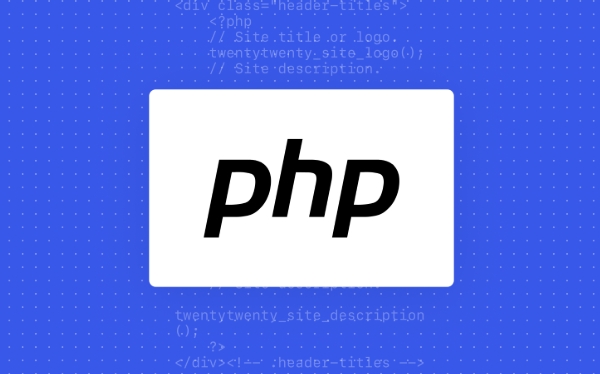Key ways to prevent SQL injection in PHP include: 1. Use preprocessing statements (such as PDO or MySQLi) to separate SQL code and data; 2. Turn off simulated preprocessing mode to ensure true preprocessing; 3. Filter and verify user input, such as using is_numeric() and filter_var(); 4. Avoid directly splicing SQL strings and use parameter binding instead; 5. Turn off error display in the production environment and record error logs. These measures comprehensively prevent SQL injection risks in terms of mechanisms and details.

The key to preventing SQL injection in PHP is to handle user input correctly and use a secure database operation method . Don’t think that filtering a few keywords can be done. Real and effective protection needs to start from the source and mechanism.

Use Prepared Statements
This is the most recommended method at present. Preprocessing statements can separate SQL code from data, fundamentally preventing injection.
- If you are using MySQL, it is recommended to use PDO or MySQLi , both of which support preprocessing.
- Example (taking PDO as an example):
$stmt = $pdo->prepare('SELECT * FROM users WHERE email = ?'); $stmt->execute([$email]); $user = $stmt->fetch();
In this way, even if $email is malicious input, it will be processed as a normal string and will not affect the SQL structure.

Note: Be sure to turn off the "Simulation Preprocessing" mode to ensure that preprocessing is actually used:
$pdo->setAttribute(PDO::ATTR_EMULATE_PREPARES, false);
Filter and verify user input
Although preprocessing is already very powerful, it is still necessary to conduct basic checks on user input.

- For fields of numeric types, use
is_numeric()or cast; - For formats such as mailbox, URL, etc., you can use
filter_var()function; - For example, verify the email:
if (!filter_var($email, FILTER_VALIDATE_EMAIL)) { // The email address is illegal, refuse to process}
This not only prevents injection, but also improves program robustness and reduces invalid requests.
Avoid splicing of SQL strings
A common mistake for beginners is to splice variables directly into SQL, such as:
$sql = "SELECT * FROM users WHERE id = " . $_GET['id'];
This writing method is extremely risky. Even if you do filtering, it will be difficult to cover all situations. Parameter binding should always be used instead of string stitching.
Do not expose error messages to the front end
During development, we like to turn on error prompts for easy debugging, but we must turn it off in production environment:
ini_set('display_errors', 0);
Otherwise, the attacker can understand your database structure by reporting an error message, thereby conducting more accurate attacks.
It is also recommended to log error logs instead of outputting them directly:
error_reporting(E_ALL); ini_set('log_errors', 1); ini_set('error_log', '/path/to/error.log');
Basically that's it. SQL injection is not a profound attack method, but many vulnerabilities are caused by neglecting details. As long as you develop good habits in development, you can effectively avoid such problems.
The above is the detailed content of How to prevent SQL injection in PHP. For more information, please follow other related articles on the PHP Chinese website!

Hot AI Tools

Undress AI Tool
Undress images for free

Undresser.AI Undress
AI-powered app for creating realistic nude photos

AI Clothes Remover
Online AI tool for removing clothes from photos.

Clothoff.io
AI clothes remover

Video Face Swap
Swap faces in any video effortlessly with our completely free AI face swap tool!

Hot Article

Hot Tools

Notepad++7.3.1
Easy-to-use and free code editor

SublimeText3 Chinese version
Chinese version, very easy to use

Zend Studio 13.0.1
Powerful PHP integrated development environment

Dreamweaver CS6
Visual web development tools

SublimeText3 Mac version
God-level code editing software (SublimeText3)

Hot Topics
 Why We Comment: A PHP Guide
Jul 15, 2025 am 02:48 AM
Why We Comment: A PHP Guide
Jul 15, 2025 am 02:48 AM
PHPhasthreecommentstyles://,#forsingle-lineand/.../formulti-line.Usecommentstoexplainwhycodeexists,notwhatitdoes.MarkTODO/FIXMEitemsanddisablecodetemporarilyduringdebugging.Avoidover-commentingsimplelogic.Writeconcise,grammaticallycorrectcommentsandu
 How to Install PHP on Windows
Jul 15, 2025 am 02:46 AM
How to Install PHP on Windows
Jul 15, 2025 am 02:46 AM
The key steps to install PHP on Windows include: 1. Download the appropriate PHP version and decompress it. It is recommended to use ThreadSafe version with Apache or NonThreadSafe version with Nginx; 2. Configure the php.ini file and rename php.ini-development or php.ini-production to php.ini; 3. Add the PHP path to the system environment variable Path for command line use; 4. Test whether PHP is installed successfully, execute php-v through the command line and run the built-in server to test the parsing capabilities; 5. If you use Apache, you need to configure P in httpd.conf
 PHP Syntax: The Basics
Jul 15, 2025 am 02:46 AM
PHP Syntax: The Basics
Jul 15, 2025 am 02:46 AM
The basic syntax of PHP includes four key points: 1. The PHP tag must be ended, and the use of complete tags is recommended; 2. Echo and print are commonly used for output content, among which echo supports multiple parameters and is more efficient; 3. The annotation methods include //, # and //, to improve code readability; 4. Each statement must end with a semicolon, and spaces and line breaks do not affect execution but affect readability. Mastering these basic rules can help write clear and stable PHP code.
 python if else example
Jul 15, 2025 am 02:55 AM
python if else example
Jul 15, 2025 am 02:55 AM
The key to writing Python's ifelse statements is to understand the logical structure and details. 1. The infrastructure is to execute a piece of code if conditions are established, otherwise the else part is executed, else is optional; 2. Multi-condition judgment is implemented with elif, and it is executed sequentially and stopped once it is met; 3. Nested if is used for further subdivision judgment, it is recommended not to exceed two layers; 4. A ternary expression can be used to replace simple ifelse in a simple scenario. Only by paying attention to indentation, conditional order and logical integrity can we write clear and stable judgment codes.
 PHP 8 Installation Guide
Jul 16, 2025 am 03:41 AM
PHP 8 Installation Guide
Jul 16, 2025 am 03:41 AM
The steps to install PHP8 on Ubuntu are: 1. Update the software package list; 2. Install PHP8 and basic components; 3. Check the version to confirm that the installation is successful; 4. Install additional modules as needed. Windows users can download and decompress the ZIP package, then modify the configuration file, enable extensions, and add the path to environment variables. macOS users recommend using Homebrew to install, and perform steps such as adding tap, installing PHP8, setting the default version and verifying the version. Although the installation methods are different under different systems, the process is clear, so you can choose the right method according to the purpose.
 What is PHP and What is it Used For?
Jul 16, 2025 am 03:45 AM
What is PHP and What is it Used For?
Jul 16, 2025 am 03:45 AM
PHPisaserver-sidescriptinglanguageusedforwebdevelopment,especiallyfordynamicwebsitesandCMSplatformslikeWordPress.Itrunsontheserver,processesdata,interactswithdatabases,andsendsHTMLtobrowsers.Commonusesincludeuserauthentication,e-commerceplatforms,for
 Your First PHP Script: A Practical Introduction
Jul 16, 2025 am 03:42 AM
Your First PHP Script: A Practical Introduction
Jul 16, 2025 am 03:42 AM
How to start writing your first PHP script? First, set up the local development environment, install XAMPP/MAMP/LAMP, and use a text editor to understand the server's running principle. Secondly, create a file called hello.php, enter the basic code and run the test. Third, learn to use PHP and HTML to achieve dynamic content output. Finally, pay attention to common errors such as missing semicolons, citation issues, and file extension errors, and enable error reports for debugging.
 How Do You Handle File Operations (Reading/Writing) in PHP?
Jul 16, 2025 am 03:48 AM
How Do You Handle File Operations (Reading/Writing) in PHP?
Jul 16, 2025 am 03:48 AM
TohandlefileoperationsinPHP,useappropriatefunctionsandmodes.1.Toreadafile,usefile_get_contents()forsmallfilesorfgets()inaloopforline-by-lineprocessing.2.Towritetoafile,usefile_put_contents()forsimplewritesorappendingwiththeFILE_APPENDflag,orfwrite()w






